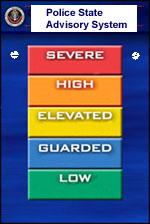When my mom died about six years ago, it was after eight miserable years being totally helpless and paralyzed on one side after a stroke. Bedridden, having to be lifted to be put in a wheel chair, her last eight years were everything she had not wanted at the end of her life.
When it became clear that her heart was finally failing, I had to look forward to a potential fight with my brothers, especially the youngest, because he was in his newly found religious salvation deeply embedded in the death denying fervor that ironically implants itself into many conservative thinkers, ironic because it seems to deny the very religious beliefs they espouse.
Fortunately, the old country doctor who had taken care of three generations of my mother’s family took my brother aside, and gently but firmly explained the facts of life to him.
Mother was dying. There was nothing, absolutely nothing that could be done to stop it. Her congestive heart failure was at a critical stage. Any intervention measures would mean weeks and perhaps even months of prolonged life, but in constant pain, agony, and suffering. Was that what he wanted?
That evening we met with the hospice group counselors in the hospital, and arranged for mother to be returned to her nursing home under hospice care. Her bed was equipped with a special mattress, and a hospice nurse checked her every day. Mother was still able to feed herself and eat for a couple more weeks, but at that point, she started fading fast, and the caretakers followed orders. There was no force feeding.
I had had to return home, which was 500 miles away, and was alerted that the end was near, but was not able to get there before she died. But my two brothers took turns sitting with her, and one was with her as she passed away.
There need to be more doctors like that old country doctor who had cared for many generations, and already himself was looking ahead with understanding that death does indeed come to us all. The tragedy is that in our modern death denying fervor, we introduce so much unnecessary and useless suffering at the end for so many.
It’s not a frequent topic of discussion, but doctors die, too. And they don’t die like the rest of us. What’s unusual about them is not how much treatment they get compared to most Americans, but how little. For all the time they spend fending off the deaths of others, they tend to be fairly serene when faced with death themselves. They know exactly what is going to happen, they know the choices, and they generally have access to any sort of medical care they could want. But they go gently.
Of course, doctors don’t want to die; they want to live. But they know enough about modern medicine to know its limits. And they know enough about death to know what all people fear most: dying in pain, and dying alone. They’ve talked about this with their families. They want to be sure, when the time comes, that no heroic measures will happen—that they will never experience, during their last moments on earth, someone breaking their ribs in an attempt to resuscitate them with CPR (that’s what happens if CPR is done right).
Almost all medical professionals have seen what we call “futile care” being performed on people. That’s when doctors bring the cutting edge of technology to bear on a grievously ill person near the end of life. The patient will get cut open, perforated with tubes, hooked up to machines, and assaulted with drugs. All of this occurs in the Intensive Care Unit at a cost of tens of thousands of dollars a day. What it buys is misery we would not inflict on a terrorist. I cannot count the number of times fellow physicians have told me, in words that vary only slightly, “Promise me if you find me like this that you’ll kill me.” They mean it. Some medical personnel wear medallions stamped “NO CODE” to tell physicians not to perform CPR on them. I have even seen it as a tattoo.
How Doctors Die. It’s Not Like the Rest of Us, But It Should Be


